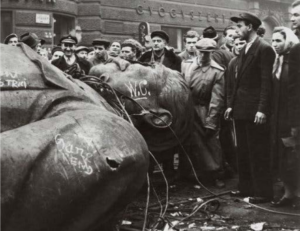 A few years ago I uploaded a post on status, to somewhat mixed reviews. A significant number of people feel that status is something to embrace, or at least something that can’t be fought.
A few years ago I uploaded a post on status, to somewhat mixed reviews. A significant number of people feel that status is something to embrace, or at least something that can’t be fought.
And so today I’m “doubling down,” as people like to say these days, because once you recognize the perversity of status, you also recognize that we very much need to get past it.
One of the things I’ve become clear on from studying Jesus is that his strategy for delivering his teachings to the people of Israel was carefully built around the status problem. In particular, he carefully avoid any mixture of status with his personal image.
Jesus fought to maintain his “mind-slot” as an outsider and as a non-powerful person. If he had allowed himself to become famous, people would have believed him for the wrong reasons. To whatever extent they believed him because he was a famous healer, their internal changes would have been that much reduced. (Those of you who have read the gospels have noticed him charging people who were healed not to tell anyone.)
People being upgraded on the inside was more or less the only thing Jesus really cared about, and I think this evasion of status was a stroke of genius on his part.
Status poisons more or less everything it touches. Status is a person’s condition, position, or standing relative to that of others.
And so status automatically creates division and conflict. It forces us to think in terms of position, hierarchy, and dominance, and can’t possibly do otherwise; it is built solely upon our standing relative to others.
To be very blunt about it, status is a primitive and barbaric model of seeing other beings. Not only does it poison our relationships, it poisons our self-image. It requires us, always, to think of ourselves as above or below every other person.
Status stands before us as an evolutionary hurdle. If humanity is to rise as a species, we must transcend status. Until we do, humans will continue to think in conflict-centered terms, and human history will overrun with stupidity and with blood.
Status is a hypnotic belief in man versus man, and its damage accrues whether we see ourselves on the “above” or “below” side of the exchange. If above, we’re given to arrogance and abuse. If below, we’re given to resentment and to lashing out. Both errors lead to internal subversion and external conflict.
Our present world is dominated by status-centered structures. Whether kingdom, democracy or whatever, these structures set one man or group of men above all others. The people of the “higher” position then collect the production of the “lowers,” issue edicts for them to obey, and punish those who do not.
The ruling systems of the present world are, to paraphrase the scriptures, status made flesh. This is a primary reason why the world is perpetually in conflict. The very model sets man against man and group against group, automatically and unavoidably.
Status may be something we’ve been trained in; it may be something that has influenced us all our lives; but it is not “us.” Rather it’s a dirty old habit, attached to some primitive biochemistry.
Individual humans are able to transcend status fairly well. Most of us learn to drop it among people we live with and love. And therein lies the proof that it is not truly “us.”
Humans, even while immersed in the poisonous and persistent mindscape of status, still demonstrate love and charity. That fact speaks extremely well of us. Our basic natures are better than we’ve believed.
And so it’s time to start stripping status from our minds.
**
Paul Rosenberg
freemansperspective.com
